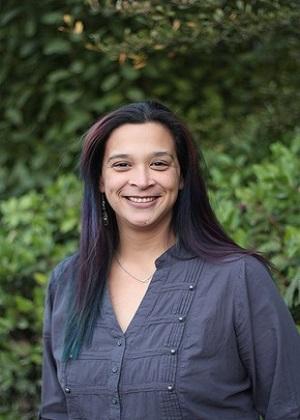Anna M. Groat Carmona, Ph.D.

About
Degrees
Teaching
Courses I am currently teaching (Winter '26):
1. Immunology (TBIOL414)
2. Biomedical Research Experience (TBIOMD499)
Courses I have previously taught (in no particular order):
1. Introductory Biology II (TBIOL130)
2. Cellular Biology (TBIOL303)
3. Immunology (TBIOL414)
4. Foundations in Biomedical Sciences (TBIOMD310)
5. Biomedical Sciences Senior Seminar (TBIOMD410)
6 (and 7). Biomedical Research Experiences (TBIOMD495 & TBIOMD499)
Current Research
Intracellular pathogens have some of the most complex, co-evolved cellular interactions with their hosts yet studied. My research focuses on the molecular mechanisms driving host-pathogen interactions in vector-borne diseases, specifically Plasmodium parasites and dengue virus (DENV). My work explores the complex strategies intracellular pathogens utilize to manipulate host cellular machinery during infection. The main research focus in my lab is understanding the developmental transitions of Plasmodium parasites as they cycle between their mosquito vectors and mammalian hosts, with particular emphasis on the molecular mechanisms that regulate membrane morphogenesis during liver-stage development. In parallel, I am investigating the role of conserved coding-region regulatory RNA elements, such as capsid-coding region 1 (CCR1), in modulating DENV replication in both mammalian and mosquito cells (subject of a cross-course CURE, TBIOL303 and TBIOMD495). As a Fulbright U.S. Scholar (2023-2024), I also lead a collaborative vector surveillance project in El Salvador to monitor the prevalence of mosquito-borne pathogens in field-caught mosquitoes (mainly Aedes aegypti). My lab integrates molecular and cellular biology, bioinformatics, vector ecology as well as biochemical approaches to identify novel therapeutic targets, advance our understanding of host-pathogen interactions, and inform current biocontrol mitigation strategies.
Current projects include:
- Characterization of the functional role for the catalytic domain of PBLP in parasite invasive-stage membrane morphogenesis.
- Establishing a cell-free in vitro culturing system to study late liver-stage development of Plasmodium yoelii parasites.
- Investigating the role of conserved coding-region regulatory RNA elements in modulating the dengue viral life cycle.
- Establishing a mosquito surveillance program to monitor the incidence of vector-borne diseases (specifically DENV) throughout El Salvador.
A. M. Groat Carmona, M. A. Velado Cano, A. M. Gonzalez Pérez, and V. D. Carmona Galindo (2025). Sex-ratio distortion of Aedes aegypti (L.) in El Salvador: biocontrol implications for seasonally dry urban neotropical environments. Diversity 17:257.
V. D. Carmona Galindo, M. A. Velado Cano, and A. M. Groat Carmona (2025). The ecology of climate change: using virtual reality to share, experience, and cultivate local and global perspectives. Education Sciences 15(3):290.
M. T. Nguyen, N. K. Samra, and A. M. Groat Carmona (2021). Circumventing HIV-1 immune evasion strategies: utilizing broadly neutralizing antibodies to bolster current drug treatments and develop novel vaccines. BIOS 92(4):139-146.
L. Dahlberg and A. M. Groat Carmona (2018). CRISPR/Cas technology: in-and-out of the classroom. The CRISPR Journal 1(2):107-114.
A. M. Groat Carmona, H. Kain, J. Brownell, A. N. Douglass, A. S. I. Aly and S. H. Kappe (2015). A Plasmodium α/β-hydrolase modulates the development of invasive stages. Cellular Microbiology 17(12):1848-1867.
A. M. Groat Carmona, S. Orozco, P. Friebe, A. F. Payne, L. D. Kramer, and E. Harris (2012). A novel coding-region RNA element modulates infectious dengue virus particle production in both mammalian and mosquito cells and regulates viral replication in Aedes aegypti mosquitoes. Virology 432(2):511-526.
J. L. Mellies, A. M. S. Barron and A. M. Carmona (2007). Enteropathogenic and enterohemorrhagic Eschesrichia coli virulence gene regulation. Infection and Immunity 75(9):4199-4210.